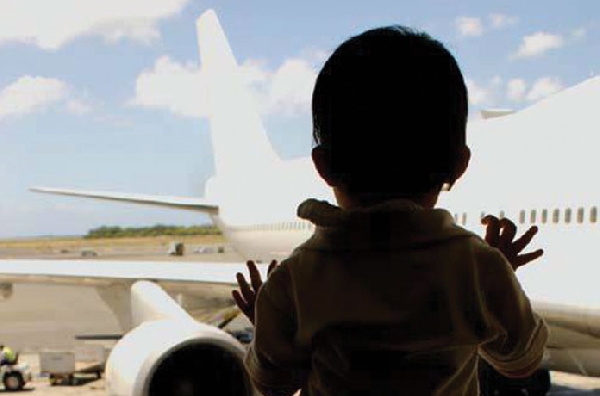
DEARBORN — A Canton woman’s story of her children being abducted in Lebanon by her husband has sparked discussions in the local community about international custody battles and kidnapping cases.
When Rolla Taha returned from Lebanon last month and announced on Facebook that her husband stranded her there and ran away with their children (her story is featured here), it caught the attention of community leaders.
Bilal Kabalan, the consulate general of Lebanon in Detroit, told The AANews that he came across Taha’s case on social media. But he said she never filed a grievance with his office.
“She didn’t file an official complaint at the consulate,” Kabalan said. “She only filed paperwork related to the relationship with her husband. Apparently, she hired someone in Lebanon and she’s following up with the case over there.”
Kabalan said that a resolution in cases similar to Taha’s depends on what citizenships the children hold and where the children were when they were taken without the consent of the other parent.
“If the kids were taken from America to Lebanon without her consent, it would be different,” Kabalan said. “In general basic knowledge, when you have dual nationals, if they are in the other country where they hold nationality, the domestic law applies to them.”
Kabalan said that in Lebanon, Taha’s case would not be classified as a kidnapping, but rather as a custody battle – despite the kidnapping charges in the U.S. against the father.
“According to the Lebanese law, the custody is to the father,” Kabalan said. “I would presume that this is a custody case, it’s not a kidnapping. You can talk about a kidnapping if they were taken without her consent from America to Lebanon.”
Mona Fadlallah, a local attorney, has handled many cases in the Metro Detroit area involving both mothers and fathers whose children were taken overseas without the consent of the other parent.
Fadlallah said that Lebanon and India are two countries with ties to the metro Detroit region that are prone to such cases with the U.S.
She said it’s strenuous for the U.S. to intervene if a country is not a signer of the Hague Abduction Convention Treaty, a multilateral treaty developed by the Hague Conference on Private International Law that provides methods to return a child internationally abducted by a parent from one member country to another.
“The concern is when the child is in a country that is not part of the Hague convention,” Fadlallah said. “It becomes difficult to bring the children back. Lebanon is not on the list and neither is India.”
Fadlallah said that in some cases, U.S. courts might charge a parent with kidnapping, but if they are in a country that is not part of the Hague Convention, it most likely won’t result in an interference from that country’s government.
“They don’t have to enforce any custodial order we have here in the U.S,” she said. “They apply their own laws. In most of these cases, a parent has to resort to obviously hoping the other spouse is charged with an international kidnapping crime or seek some sort of diplomatic intervention.”
Fadlallah said lawmakers need to implement new measures, such as requiring written consent from both parents if children are traveling to a country that is not part of the Hague convention.
The Hague Convention is mostly compromised of countries in Europe and South America. Fadlallah said she believes Lebanon and other Middle Eastern countries are not on the Hague Convention due to cultural and political differences.
“I’m sure Lebanon has great rules for its people,” she said. “But the protection and enforcement we think is proper becomes difficult to enforce over there. There are a lot of religious or cultural factors that go into play. I think it’s one of the reasons why they don’t sign on, because those rules might conflict with their policies and laws.”
Despite overseeing numerous cases involving international custody battles and abductions, Fadlallah said there’s rarely a happy ending.
“Unfortunately, I have yet to see anybody whose children have come back,” she said. “It’s really sad. I’ve known people who have been in this situation and it’s not easy for them.”






Leave a Reply